These myths might make you think tankless water heaters aren't effective!
7 Tankless Water Heater Myths You Need to Stop Believing
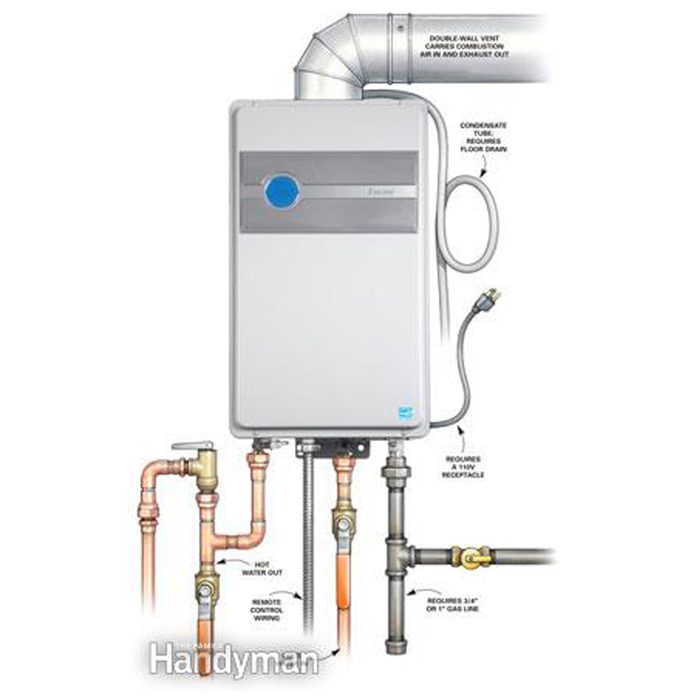
They’re Expensive to Operate
An alternative to bulky water heaters that take up less space? Yes, but it must be expensive. Not so! A common myth many people believe is that tankless water heaters require dishing out a hefty amount of dough, but that’s simply untrue. In fact, using a tankless water heater can save you 20 percent on your energy bill as a result of the heater not storing hot water when it’s not being used. Here’s some helpful information to help you choose a new water heater, along with our recommended tankless water heaters.
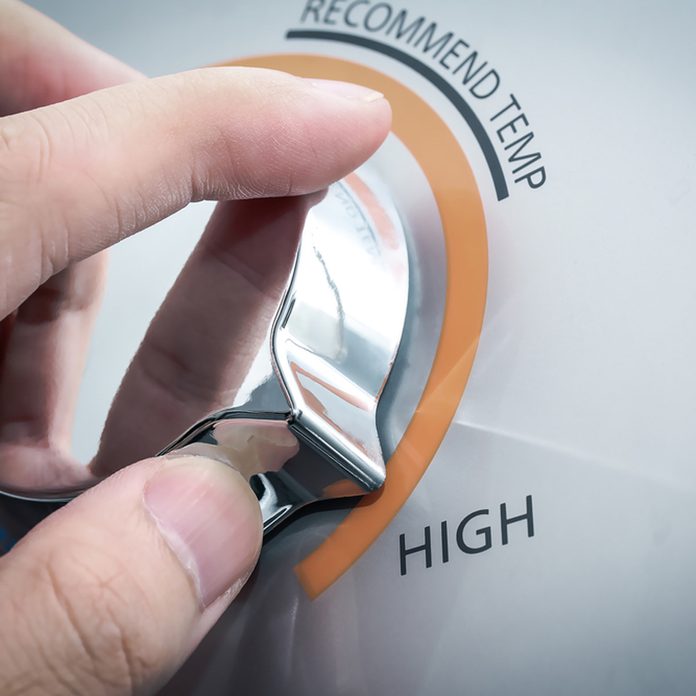
They Heat Water to an Unsafe Temperature
Just because it’s smaller in size doesn’t mean a tankless water heater doesn’t have necessary parts like a thermostat. In fact, they offer an adjustable thermostat for personalized use, helping you to prevent overheating and potential scalding. Considering a tankless water heater? Here are the pros and cons.
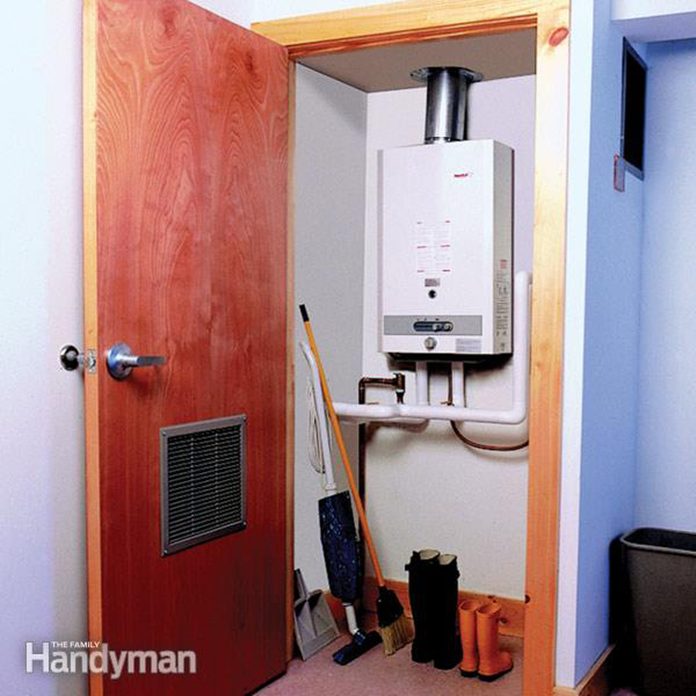
They Don’t Supply Enough Hot Water
Another common myth regarding a tankless water heater is that once the water is used, water must be reheated, which can take up to 30 minutes. But there’s no storage tank, which means no shortage of hot water. The water is heated as it passes over a heating element to an outlet, so as long as you need the hot water, you’ll get it.

They Deliver Hot Water Instantly
A tankless water heater shouldn’t be purchased solely on the belief that it delivers hot water at the speed of light. Yes, it comes very quickly, but no, it’s not instantaneous. Essentially, the speed of hot water relies on the distance of the water heater from the faucet.

They Require Annual Inspections
Don’t believe the myth that you have to hand over cash each year for an inspection on your tankless water heater. There’s really no set time frame to service a tankless water heater, as it really depends on the hardness of the water. The harder the water, the quicker mineral deposits will build up in a water heater. Your tankless water heater will push most of this through the system, but if there is a buildup, the scale detection software will show you an error message, and then you’ll need to service it. Here’s what you need to know about DIY hot water heater repair.
Photo: Courtesy of Lowes
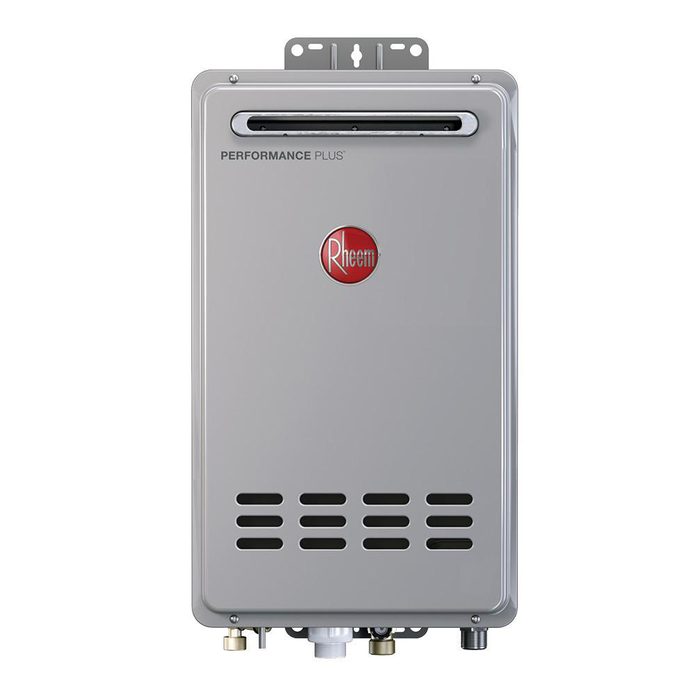
They Require Natural Gas
Some tankless water heaters do indeed use natural gas, but not all! Others use propane-powered systems that provide the very same features and are just as efficient. Propane powered systems are just not as common as natural gas versions. There are also electric versions as well, which reportedly use 15 to 20 percent less energy than a conventional electric tank water heater. Here’s how to install a hot water heater.
Photo: Courtesy of Rheem
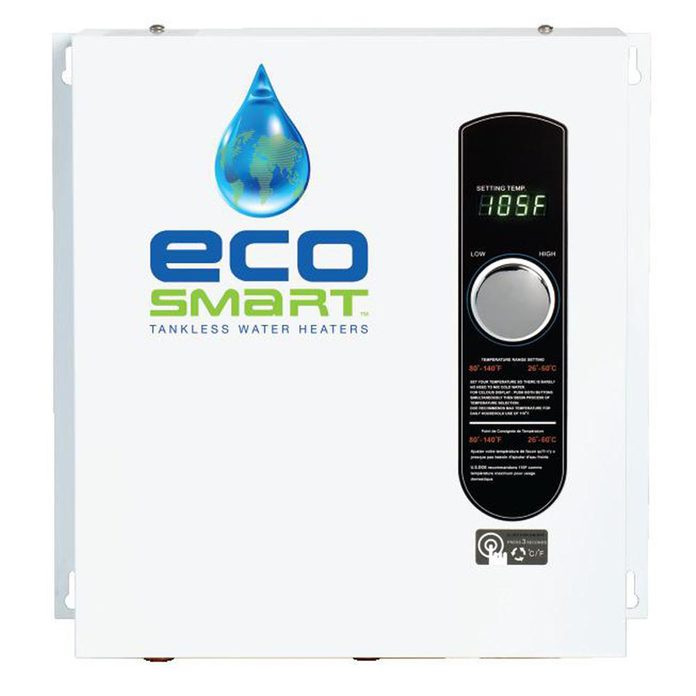
They Don’t Work With Well Water
The harder the water, and the more people using the water, the more scale that begins to form. Well water is mistaken as too hard for tankless water heaters, but no significant difference has been shown regarding homes that use city water and those that use well water. In fact, the water quality of all wells differs according to location and the mineral composition of the soil and bedrock.
Troubleshooting Common Water Heater Repairs
Learn how to troubleshoot and fix common water heater problems, from pilot light issues to leaks, with simple step-by-step solutions and maintenance tips.
- DIY Water Heater Testing and Repair
- How Long Do Water Heaters Last?
- How to Extend Your Water Heater’s Lifespan
- How to Dispose of a Water Heater
- Water Heater Leaking from Drain Valve? Here’s What to Do
- A Water Heater Vent Installed Like This Can Have Lethal Consequences
- How to Fix a Water Heater Pilot Light
- How to Replace a Water Heater Thermocouple
- What to Do If Your Water Heater Has a Defective Dip Tube
- Is Your Water Heater’s TPR Valve Leaking? Here’s What to Do
- Water Heater Anode Rod Replacement
Photo: Courtesy of EcoSmart


















